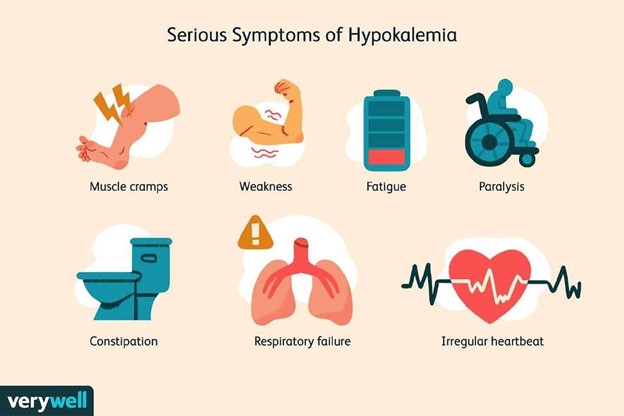Which is the hormone that stimulates the release of aldosterone from the adrenal cortex.
Renin.
Angiotensin I.
Angiotensin II.
Antidiuretic hormone (ADH).
The Correct Answer is C
Angiotensin II is a hormone that stimulates the adrenal cortex to release aldosterone. Aldosterone is a hormone that helps regulate blood pressure by increasing the reabsorption of sodium and water and the excretion of potassium by the kidneys.
Choice A is wrong because renin is not a hormone but an enzyme that catalyzes the conversion of angiotensinogen to angiotensin I1.
Choice B is wrong because angiotensin I is an inactive precursor of angiotensin II that is converted by angiotensin-converting enzyme (ACE) in the lungs.
Choice D is wrong because antidiuretic hormone (ADH) is a hormone that regulates water balance by increasing the reabsorption of water by the kidneys, but it does not affect aldosterone secretion.
Nursing Test Bank
Naxlex Comprehensive Predictor Exams
Related Questions
Correct Answer is ["A","B","D"]
Explanation

These are all signs and symptoms of hypokalemia, which is a condition where the blood potassium level is too low. This can affect the function of the muscles, nerves, and heart. Therefore, the nurse would expect to find these signs and symptoms in a client with dehydration and hypokalemia.
Choice C is wrong because hyperreflexia is not a sign or symptom of hypokalemia.
Hyperreflexia is a condition where the reflexes are exaggerated or overactive.
This can be caused by conditions such as spinal cord injury, stroke, or electrolyte imbalances such as hypocalcemia or hypomagnesemia.
Correct Answer is B
Explanation

Hyponatremia is a condition where the serum sodium level is below 135 mEq/L, which can affect the normal functioning of cells, muscles, and organs.
Administering intravenous fluids with a high sodium content can help restore the sodium balance and prevent complications such as confusion, seizures, and coma.
Choice A is wrong because encouraging the patient to consume a low-sodium diet would worsen the hyponatremia and increase the risk of electrolyte imbalance.
Choice C is wrong because administering a diuretic medication to increase urine output would cause further fluid and sodium loss and exacerbate the hyponatremia.
Choice D is wrong because encouraging the patient to increase fluid intake would dilute the sodium concentration and lower the serum sodium level.
Whether you are a student looking to ace your exams or a practicing nurse seeking to enhance your expertise , our nursing education contents will empower you with the confidence and competence to make a difference in the lives of patients and become a respected leader in the healthcare field.
Visit Naxlex, invest in your future and unlock endless possibilities with our unparalleled nursing education contents today
Report Wrong Answer on the Current Question
Do you disagree with the answer? If yes, what is your expected answer? Explain.
Kindly be descriptive with the issue you are facing.
